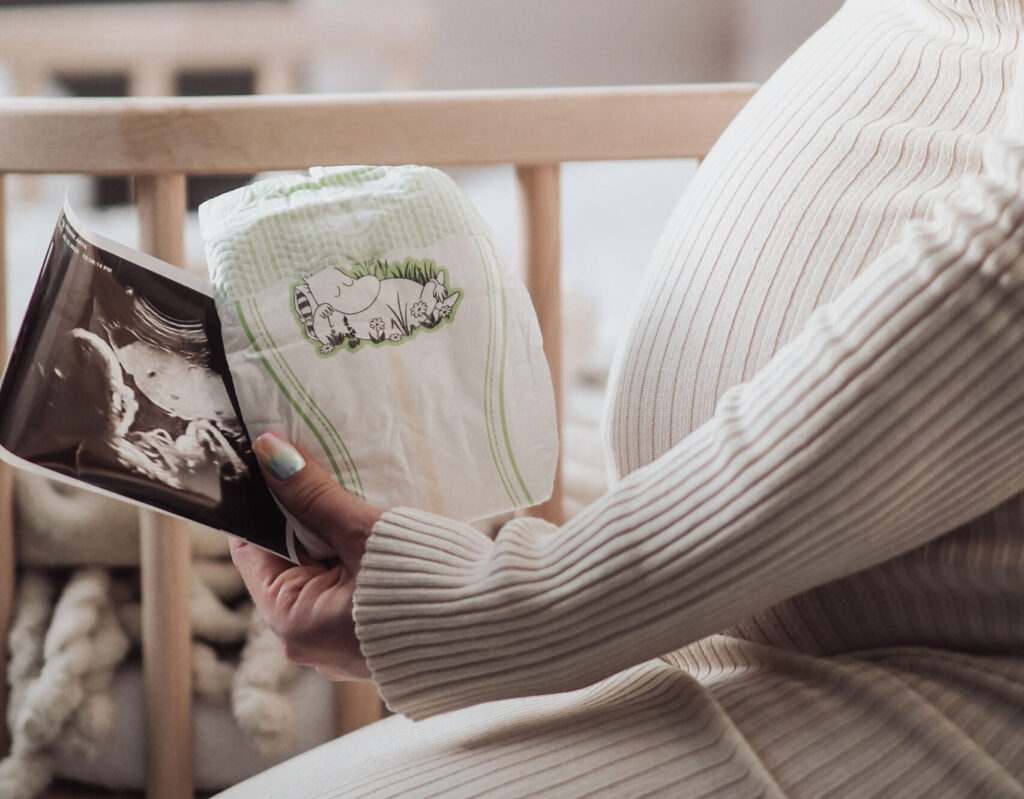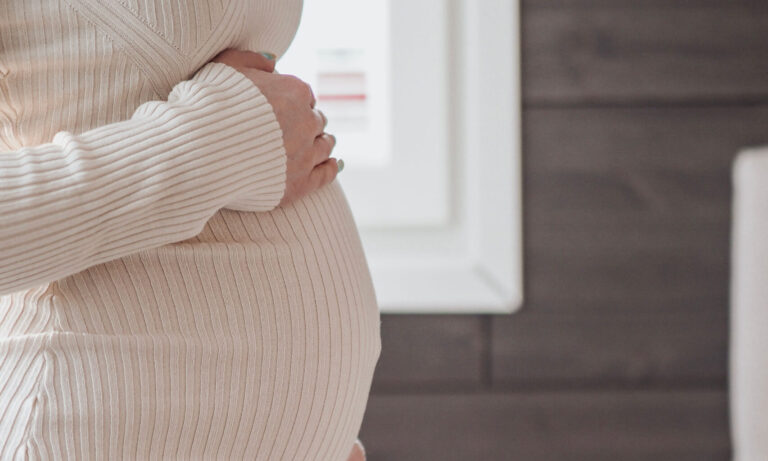Pregnancy is an exciting time, full of planning and preparation. This period can also raise questions about travelling. Flying while pregnant can be safe, but it does require certain precautions and considerations. In this article, we will go through the most important tips and recommendations that expectant mothers should consider before flying. Whether it’s a holiday trip or an unavoidable business trip, these tips will help you prepare for a safe and comfortable flight at different stages of your pregnancy.
Pregnancy and flying: When is it safe to travel?
Most health experts and airlines recommend that the best and safest time to fly during pregnancy is during the second trimester, between weeks 14 and 28 of pregnancy. During this time, many of the symptoms of early pregnancy, such as nausea and fatigue, are often reduced and the risk of miscarriage is reduced. However, the challenges of the last trimester, such as an increased risk of blood clots and increased physical discomfort, have not yet been reached. Some airlines require a medical certificate for pregnant women over 28 weeks pregnant, and most do not allow travel beyond 36 weeks of pregnancy in normal risk pregnancies. It is important to check the airline’s own policies and speak to your consultant or doctor before travelling.
Airline policies and restrictions: What to check before flying?
Flying while pregnant requires special attention to airline policies and restrictions. Different airlines have their own rules for pregnant passengers, which can vary significantly depending on the airline. It is important to find out about these restrictions well in advance of booking your trip. Most airlines require a doctor’s certificate if the pregnancy has progressed beyond a certain week limit, typically at 28 or 32 weeks, and some may restrict or ban flights altogether in the last few weeks before the due date. The medical certificate should state that the pregnant passenger’s medical condition permits the use of the airspace and that there are no complications with the pregnancy. In addition, it is also a good idea to check what services the airline offers pregnant women, such as priority queuing or the possibility of choosing a seat near the toilet. Before flying, it is also advisable to discuss your travel plans with your doctor to ensure that it is safe for your pregnancy.
Read more about the stages of fetal development here!
Checking your health for your flight
Talking to your doctor before flying is absolutely essential when planning to travel during pregnancy. Even if the pregnancy is progressing normally without any additional challenges, it is always wise to check with your doctor or maternity nurse to ensure that it is safe to travel. The doctor can assess the health of both mother and fetus and make recommendations regarding flying. It is important to discuss any risks, such as the risk of blood clots on long flights or other changes during pregnancy that may affect flying. If necessary, the doctor can also write a statement in support of flying or make suggestions about additional support needed during flying. If there have been complications during pregnancy, such as premature contractions or hypertension, your doctor may recommend that you avoid flying altogether. A discussion with your doctor will ensure that you are flying safely and in good health.
Read more about morning sickness here!
With these small but effective ways, you can make your long flight as enjoyable as possible.
Long flights: Strategies to maximise your comfort
Long flights can be particularly challenging during pregnancy, but with the right strategies and preparation, you can make your journey as comfortable as possible. Preferably choose loose, comfortable clothing that doesn’t squeeze or pinch anywhere. Pack a small footrest for your flight or lift your legs up on the bag from time to time to reduce swelling and improve circulation. Also take advantage of walking in the corridor regularly; it not only improves circulation but also reduces the risk of blood clots. It is also important to drink plenty of water during the flight, as hydration helps prevent common pregnancy ailments such as contractions and swelling. If necessary, ask the flight crew for more pillows to support your back and stomach better. Also check that there is an easily accessible toilet near your seat, as you will need to use the toilet more often during pregnancy. With these small but effective steps, you can make your long flight as enjoyable as possible.
Seatbelt use and safety tips for pregnant women
When you are pregnant, it is extremely important to pay attention to safety aboard the aircraft. The use of a seatbelt is compulsory and must be fitted correctly during pregnancy. The belt should be positioned so that it passes over the lower part of the stomach and the pelvis, not directly over the abdomen, so as not to put pressure on the baby. It is also recommended to wear the belt whenever you are sitting still, as it provides protection against sudden turbulence. If possible, choose a seating position with more leg room and easier access to the aisle. This will not only make your journey more comfortable, but also safer, as you can more easily move back to your seat in the event of turbulence. Don’t hesitate to ask for assistance or further instructions from the staff during the flight if you feel uncomfortable or need extra help putting your seatbelt on. Following these simple but important safety tips will ensure a safer and more enjoyable flying experience for you and your baby.

Food and drink on board: Things to avoid and nutritional recommendations
During pregnancy, it is important to pay particular attention to what you eat and drink, especially during air travel. Items to avoid on flights include raw or undercooked meat and fish, soft cheeses, and any food that may contain listeria. Processed snacks and salty foods should also be avoided, as they can increase bloating and fluid retention in the body. Because pregnant women are more susceptible to food poisoning, make sure that all food served is properly cooked and safe to eat. Nutritional intake is particularly important when flying, so include healthy snacks such as fruit and nuts in your suitcase. Also remember hydration; drink plenty of water before, during and after your flight to avoid dehydration and the resulting fatigue and nausea. Limit your intake of caffeine, which can affect blood circulation and also cause dehydration.
Read advice on dealing with heartburn while pregnant here!
Airport security checks: What expectant mothers need to know
Airport security checks can be stressful, especially during pregnancy. It’s important to know that the radiation used in screening scanners is very low, so it’s safe even during pregnancy. If you are concerned about radiation, you can always request a personal check, which is carried out as a manual check. It is advisable to inform the screening staff of your pregnancy so that they can adapt to the situation and, if necessary, guide you through an easier process. In addition, check in advance the airport’s policies regarding the transportation of liquids. Pregnant women are often allowed to carry more liquids than usual, including water and other necessary nutritional supplements to help stay well hydrated throughout the journey. However, please ensure that these items are properly packed and displayed for screening so that security checks can be carried out as smoothly and quickly as possible.
Travel insurance and pregnancy: How comprehensive of an insurance should you consider?
When travelling during pregnancy, it is important to make sure that your travel insurance covers any health problems that may arise during pregnancy. Many insurance companies have special services for pregnant women, but their coverage and conditions can vary considerably. It is advisable to check whether the policy includes specific definitions of pregnancy, such as travel before a certain week of pregnancy and what counts as normal and what counts as a complication. Check whether services cover sudden hospitalisation, medical visits abroad and possible premature delivery. The possibility of returning from abroad in an emergency is also an important safety net. You should also find out whether your insurance company requires a medical certificate of readiness to travel before you go. Making sure you have a thorough check of your insurance and that it covers you in all circumstances will help to secure your travel during pregnancy and give you peace of mind.
By taking these things into account, you can reduce the effects of jet lag and enjoy your trip more during pregnancy.
Jet lag and its management during pregnancy
The time difference can have a significant impact during pregnancy, as it disrupts sleep patterns and can increase fatigue and other symptoms. To manage the stress of jet lag, it is important to prepare in advance. Try to adjust your sleep rhythm a few days before your trip to the time zone of your destination. This will help your body adapt more quickly to the new time. On the flight, drink plenty of water and avoid caffeine, which can disturb your sleep. Try to sleep during the flight, using a comfortable neck pillow and eye patches to reduce environmental disturbance. At your destination, stay in bright places during the day as this helps to regulate your body’s natural clock. If your symptoms are severe, talk to your doctor about safe ways to help you feel better. These tips can help you reduce the effects of jet lag and enjoy your trip better during pregnancy.
Packing list for pregnant women: Essentials to take on board
When travelling during pregnancy, it is important to pack all the necessary items to make your flight as comfortable and safe as possible. Preferably pack comfortable, loose-fitting clothes that don’t pinch or squeeze. Take compression socks to help prevent swollen feet and blood clots on long flights. Also remember to pack enough snacks such as fruit, nuts and snack bars to keep hunger at bay and help keep blood sugar levels steady. A water bottle is also essential to stay hydrated throughout your journey. Also include a small pillow or back support for extra comfort in your packing list. Don’t forget to bring copies of any medical documents related to your pregnancy and contact details for your own clinic or doctor in case of an accident. All these items will help make your flight more comfortable and safer during your pregnancy.











